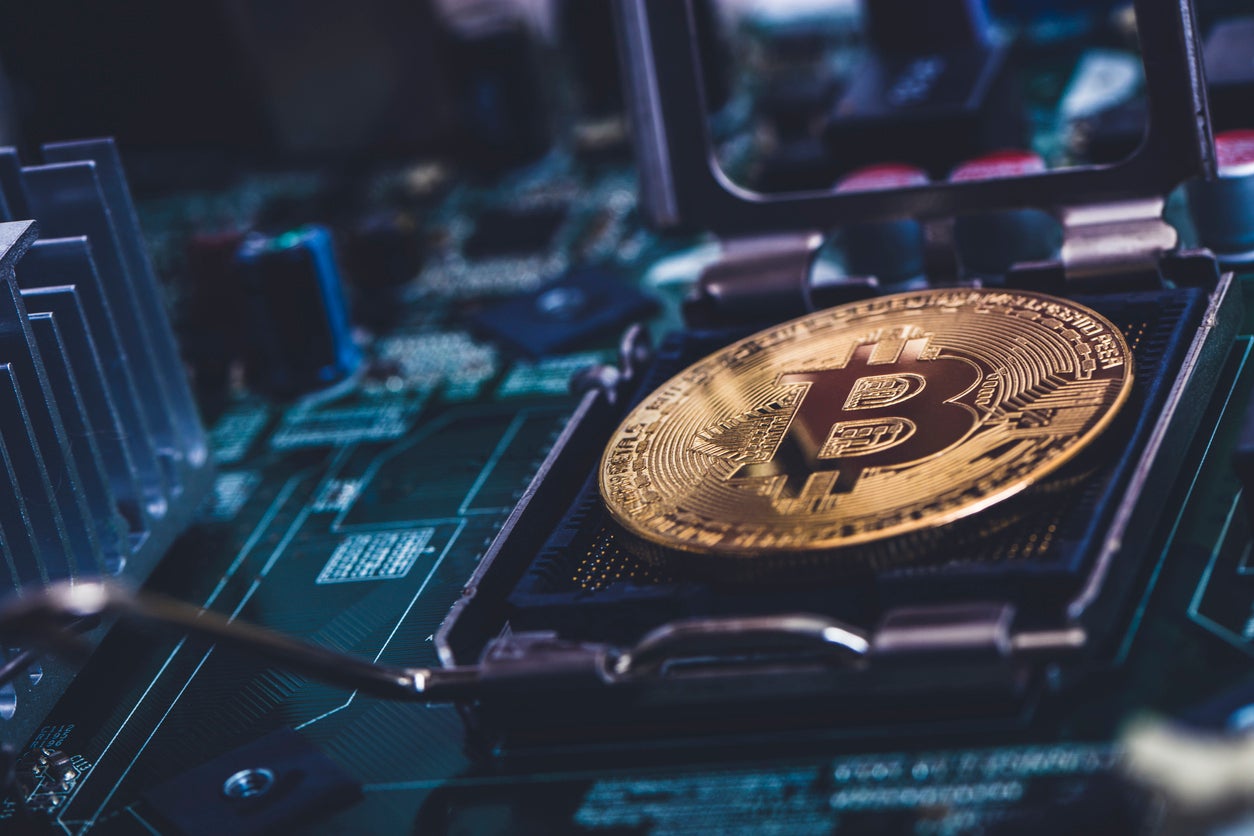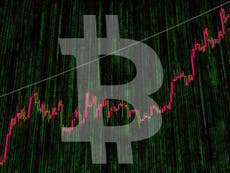Millennials love bitcoin and now the baby boomers are joining in too
There’s been a generational change in thinking – from purchasing virtual goods like Fortnite skins to investing in a cryptocurrency


Your support helps us to tell the story
From reproductive rights to climate change to Big Tech, The Independent is on the ground when the story is developing. Whether it's investigating the financials of Elon Musk's pro-Trump PAC or producing our latest documentary, 'The A Word', which shines a light on the American women fighting for reproductive rights, we know how important it is to parse out the facts from the messaging.
At such a critical moment in US history, we need reporters on the ground. Your donation allows us to keep sending journalists to speak to both sides of the story.
The Independent is trusted by Americans across the entire political spectrum. And unlike many other quality news outlets, we choose not to lock Americans out of our reporting and analysis with paywalls. We believe quality journalism should be available to everyone, paid for by those who can afford it.
Your support makes all the difference.OK boomer,” the snarky bitcoin devotee tweeted at me, having read my last critical piece concerning what’s increasingly known as the “digital gold” in investment markets.
For the record, I’m not a baby boomer – I’m Generation X. But it scarcely matters. What does matter is that the ranks of those comfortable with the virtual currency are growing.
Millennials are leading the charge. DeVere, a financial adviser, found that more than two-thirds (67 per cent) of the more than 700 millennial clients it surveyed said that they preferred bitcoin to gold as a safe-haven asset.
They are increasingly dragging the Gen Xers and boomers who dominate the world government of money with them.
Bitcoin is “here to stay”, said Rick Reider, BlackRock’s chief investment officer of fixed income, in an interview with CNBC last month. BlackRock is the world’s biggest fund manager and Reider’s views created quite the flutter, precisely because they have clout.
BlackRock’s chief executive, Larry Fink, wondered earlier this week whether the crypto-currency could ultimately have an impact on the dollar’s status as the world’s reserve currency. He was answering questions alongside Mark Carney, former governor of the Bank of England, at a Council on Foreign Relations digital symposium.
Fink’s endorsement of bitcoin, if that’s what it was, was tepid indeed. “You see these big giant moves every day. It’s a thin market,” he said. “Can it evolve into a global market? Possibly.”
But that’s still a very different take to the one he had in 2017, the last time Bitcoin scaled the heights it has reached today, when he called it an “index of money laundering”.
JP Morgan’s boss, Jamie Dimon, was more even more blunt. He branded bitcoin owners as “stupid” and said he wasn’t going to talk about it any more.
The tide has turned since then. Janet Yellen, former governor of the US Federal Reserve and the proposed treasury secretary under US president-elect, Joe Biden, has said she’s not a fan. Rumours of a crackdown before she even takes office have been doing the rounds, and they are apt to batter the currency’s (in)famously volatile price; in graphical form, it resembles one of the rollercoasters at Disney’s shuttered LA theme park.
Bitcoin makes regulators nervous, and not just as a result of the potential for its misuse identified by Fink. Volatility breeds instability, and there’s plenty enough of that to go around at the moment.
I’m nonetheless starting to wonder whether they might be on the wrong side of history, and whether I might be in the same boat.
The chief problem with bitcoin is the fact that it’s wearing the emperor’s new clothes.
What separates it from the gold that millennials are turning their backs on is that gold is an asset with physical form. It doesn’t matter how complex and opaque your derivative linked to it is, you can ultimately trace it back to a lump of metal in a warehouse somewhere that you can see and feel, even potentially use.
Shares in quoted companies are backed by earnings streams derived from products and services. Traditional currencies, such as the dollar, the euro, even Britain’s Brexit-battered sterling, have a central bank standing behind them, and are the units of exchange for physical economies.
Crypto-currencies don’t have any of that, and despite the vast store of value built up in them, it’s still devilishly difficult to use them for anything other than trading.
But again, things are moving in their direction. PayPal, for example, recently announced plans to allow US users to buy, sell and hold bitcoin. They came with caveats and restrictions, which critics were quick to point out, but it was nonetheless a significant move.
Back to that DeVere survey. What I, and bitcoin’s other sceptics, may have missed is a generational change in thinking. Bitcoin’s decentralised store of value is essentially backed by an idea, or a belief. Those things have always been powerful, and they are becoming even more so in the digital world inhabited by millennials and the even-more-plugged-in Generation Z.
It’s interesting to note that what may seem intangible to Gen X parents, and boomer grandparents, is as real to their children as any physical product. Gen Z kids are as likely to spend their allowances on digital add-ons like Fortnite skins or Fifa expansions in the way we bought Pokemon cards and stickers. They’re deaf to the cries of “There’s nothing there”, hearing only the “Well, I suppose it’s your money to waste.” Except they don’t see it as a waste.
As they get older and start accumulating assets and disposable income, bitcoin may well be among them. That’s the lesson of DeVere’s survey, which made note of a huge generational wealth transfer that’s on the way. An estimated $60 trillion (£44 trillion) is due to shift as the boomers die out and the millennials inherit.
I’m not personally about to start trading the thing – although I’m aware that the cookies I’ve picked up in the course of researching this piece mean I’m about to be bombarded with pestilential ads urging me to do just that. I’ve been writing about finance for a long time, and I’ve seen too many people getting badly hurt by too many crises and crashes.
But I also recall a whip-smart millennial colleague, who’d seen a few of those herself and whom I greatly respected, confessing that she wished she had started trading when bitcoin was last peaking.
The tide is moving and while I remain wary, I confess that it’s taking me along with it.

Join our commenting forum
Join thought-provoking conversations, follow other Independent readers and see their replies
Comments